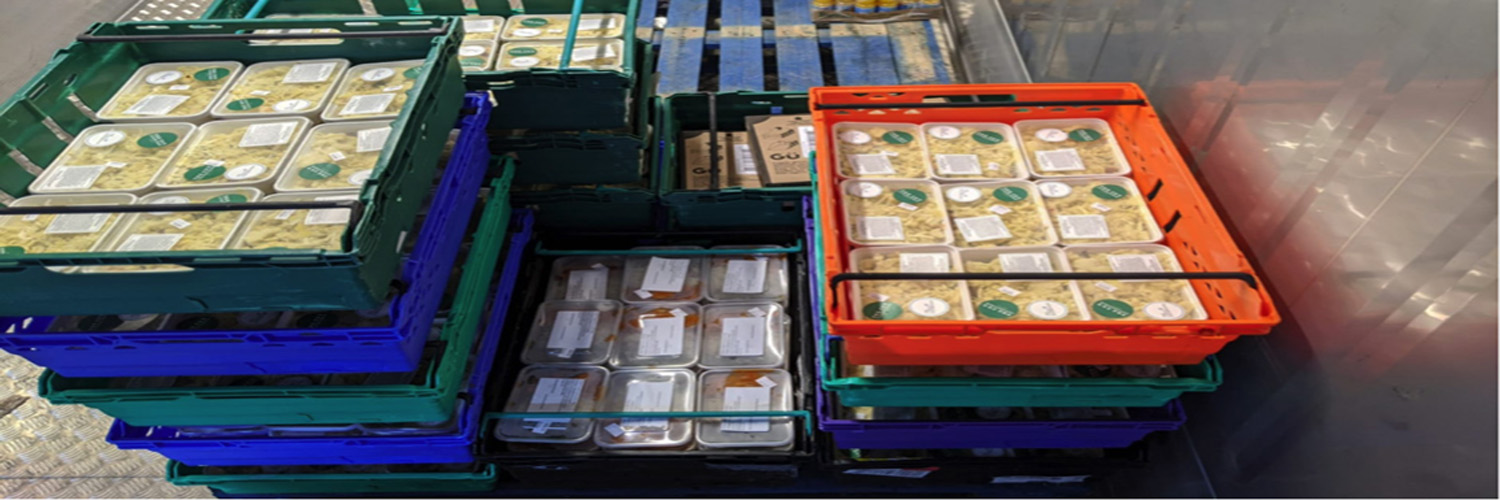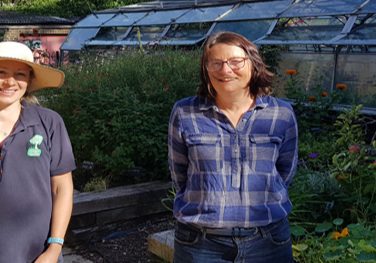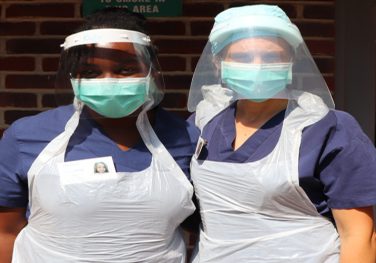Covid Response: Tackling hunger and isolation
Distributing food and supplies across the Capital and beyond
When the coronavirus forced schools to close their doors, it wasn’t just their education children were missing out on. For some, the school day was the only time they got a decent meal. There were also thousands of older and vulnerable adults, now confined to their homes, who needed shopping and cooked meals delivered. And, as the financial impact of the crisis hit, thousands more were left without the money to feed themselves and their families.
We worked quickly to arrange grants to eight organisations involved in food distribution.
Chefs in Schools trains teams to run school kitchens and teach pupils about cooking and healthy eating. They responded to COVID-19 school closures with a Lunch Box scheme – food parcels that provide a week’s worth of freshly made meals, plus store cupboard essentials, to children eligible for free school meals. We match-funded the charity’s emergency appeal to finance this scheme so that every donation would have double the impact.
The North Paddington food bank saw a 400% rise in demand during just one week in April 2020. Our grant to community action organisation, the Paddington Development Trust, meant the food bank could run a large refrigerated unit and keep delivering vital food supplies to local people.
We also gave a grant to the Venture Community Association to support their foodbank for 10 weeks. We covered the cost of staff to run the food bank, the associated admin, as well as personal protective equipment (PPE).
Redistributing food and supplies where they’re needed most
When the pandemic hit, City Harvest quickly scaled up their operation – rescuing surplus fresh food from restaurants and wholesalers and redistributing it to organisations across London that made up care packages for vulnerable families, or cooked healthy and nutritious meals for NHS workers, older people and others in need. Our donation contributed to over 100,000 meals.
Leicester-based charity Giving World saves brand new items from landfill and distributes them to those who need them. During lockdown, we supported them with a grant to increase their distribution of goods and food to charities and hospitals.
- According to the Food Standards Agency, in April and May 2020 between 2.7 million and 3.7 million adults sought food from charities or used a food bank.
- We gave a total of £86,000 to support organisations preparing and distributing food during the coronavirus crisis.
- We partnered with eight grassroots charities as they worked to provide around 4 million meals.

Providing nutrition, preventing isolation
The Winch has been supporting children, young people and families in north Camden since the 70s. With our funding, they were able to tackle food shortages and loneliness during lockdown, providing emergency food vouchers and food deliveries to around 70 families a week and supporting 44 people who were feeling isolated with one-to-one support sessions.
Age UK Kensington & Chelsea is an independent, local charity providing a range of services to older people, including befriending, practical help, information and advice, and a variety of social and leisure activities. The charity started supplying care packages to isolated older people. As well as food, they offered a support system, making sure that people were set up online so they could stay connected with others during lockdown.
Our long-term partner in India and the UK, the Akshaya Patra Foundation, provides freshly cooked, nourishing meals to people who need them. At the start of the pandemic, we gave a grant to help them scale up to an additional 2,000 meals every day for international students stranded in the UK, vulnerable families, homeless people and those who had no access to food while they stayed at home.
“When lockdown began in March, it was clear early on that food provision would be one of the most urgent needs faced by Londoners. We wanted to help people across our city to access food, helping to stave off lockdown hunger for many, including children, families and older people.”
More Success Stories

Covid Response: Education

Covid Response: Outdoor spaces

